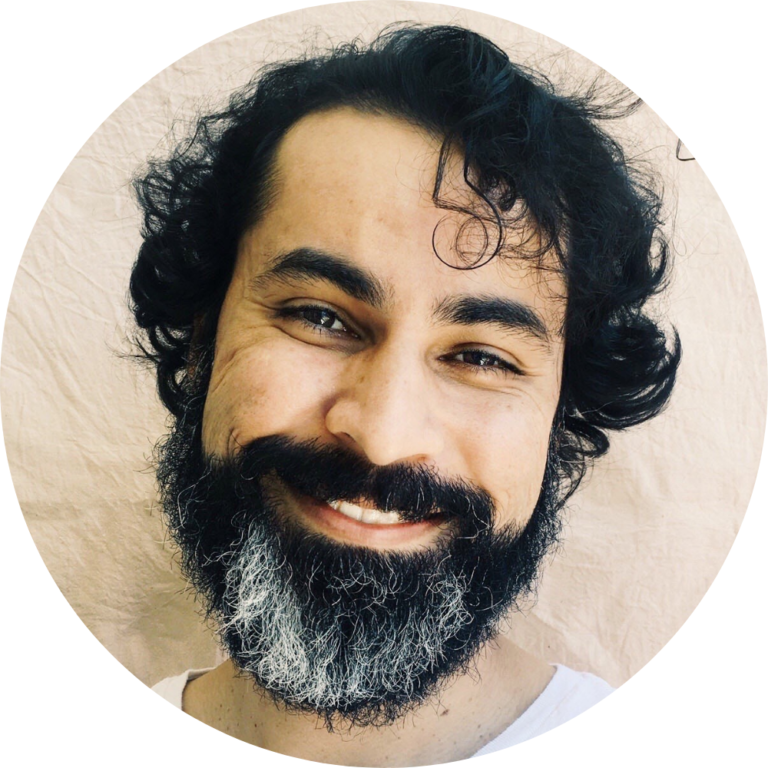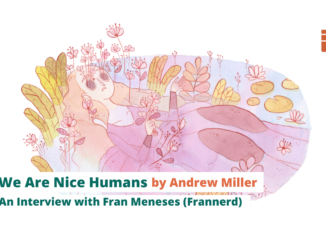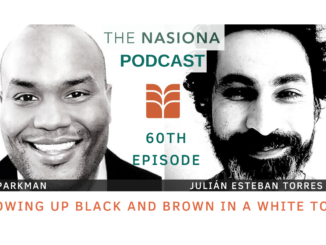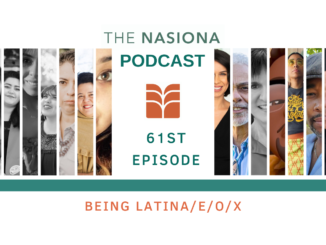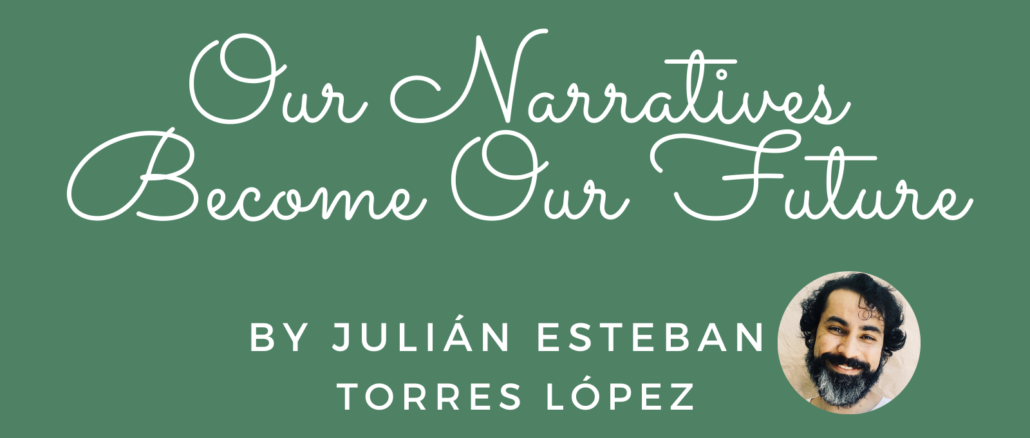
Colombian music is one of the few meditative spaces that almost instantly brings me into a psychological and emotional place where I feel at home, safe … transporting me back to a more innocent time in my youth before many of my traumas commenced … before I was disordered.
I hate the term “disorder” for many of the conditions I’ve been diagnosed with because many of these “disorders” are caused by the environment disabling me from existing as me as a result of the current forces and pressures pushing us to conform to certain arbitrarily defined normative values that Other us, dehumanize us, devalue us, and traumatize us.
I hate the term “disorder” for many of the conditions I’ve been diagnosed with because there are systemic barriers, derogatory dispositions, and exclusionary structures that make it difficult, if not impossible, for many individuals with impairments and disabilities, like myself and many of you, to reach our potentials and optimal ability to function … to access safe and encouraging spaces … to be allotted the opportunities we need to thrive.
In an effort to normalize all aspects of our humanity and the full spectrum of health and suffering … in an effort to validate our experiences in a society that abuses us then shames us for the consequences of said abuse … in an effort to find solidarity in community … in an effort to count the discounted and to include the excluded … in an effort to resist taboos that continue to oppress us … in an effort to embody a more authentic life, and feel and be more encouraged to live a life where we don’t have to mask or code-switch or fear existing … in an effort to intentionally design the environment that I (and so many others like me) need to truly feel and be loved, supported, and cared for … I share with you some of the conditions I live with every day of my life.
- Attention Deficit/Hyperactivity Disorder
- Obsessive-Compulsive Personality Disorder
- Obsessive-Compulsive Disorder
- Post-Traumatic Stress Disorder
- Nightmare Disorder
- Generalized Anxiety Disorder
- Social Anxiety Disorder
- Major Depressive Disorder
- Non-diabetic Intermittent Hypoglycemia
- Obstructive Sleep Apnea
- Spina Bifida Occulta
- Coronary Artery Disease
- Unstable Angina
I take eight medications daily, have a new one coming, and I also take two others as needed throughout the day for anxiety and unstable angina if I have an attack for either.
I don’t share this personal information for sympathy. I share this because, as Rev. Dr. Jacqui Lewis wrote:
“The narratives you give power through silence become our future.”
Not only I but WE need a better future … a future that demands an intentional environment that is better than what our silences have not only allowed to grow but that we have designed, as a result. I’m sharing this because I now know what I needed during my first 40 years of life, and I want to actively use my power and privilege to design a more welcoming, transformative, empowering, healing, and liberating world that also centers our concerns.
Similarly, I come from the Audre Lorde school of resistance in that I am dedicating both my life and my creative talent to confronting and addressing injustices because, as Lorde wrote:
“Your silence does not protect you.”
Lorde emphasized that “the transformation of silence into language and action is a self-revelation, and that always seems fraught with danger.” People are afraid of others’ reactions for speaking, but mostly for demanding visibility, which is essential to live. Lorde added,
“We can sit in our corners mute forever while our sisters and ourselves are wasted, while our children are distorted and destroyed, while our earth is poisoned; we can sit in our safe corners mute as bottles, and we will still be no less afraid. […] People are taught to respect their fear of speaking more than silence, but ultimately, the silence will choke us anyway, so we might as well speak the truth.”
We can learn to speak even when we are afraid. I am done choking myself. I am done biting my tongue for the comfort of others, which directly burdens me with the consequences of oppression … mine and yours. I want to become more than just a survivor. I want to overcome my own complicity in my and your suffering, and I want you to overcome yours, as well. I want to reinvent and create beyond what we’ve accepted as the best of all possible worlds.
I will start with my voice, and yours.
My relationship with silence—its harms and abuses and traumas and status-quo-upholding structures and shaming social control mechanisms—is what has led me to focus my life and creative pursuits on storytelling and to center, elevate, and amplify the voices and experiences of those who have been Otherized by systems of oppression and dominant cultures.
I am here today to remind you of several things I, myself, need to be reminded of periodically to be able to exist and cope with the traumas of being human.
I want to remind you that you don’t have to stay calm or silent in the face of dehumanization. Conversely, I also want to remind you that just because someone asks you a question doesn’t mean they’re entitled to your answer. Somethings are none of their business, and your mental and emotional health are more important than inconsiderate people’s intellectual curiosities. It’s okay to love yourself, which sometimes does require silence.
I also want to remind you to not feel awful when you feel like people are not worth your energy and investment. Many times that feeling is a form of self-love. You are centering your needs. It’s okay to love yourself and to lose yourself in your own embrace.
A friendly reminder that “we confront in order to connect. This is the legacy of James Baldwin,” wrote Eddie S. Glaude Jr. “The troubles we’re in are deeper than we thought because the troubles are in us, which requires us to be vulnerable. The autobiographical is the point of entry into the global context.”
I want to remind you that our traumas are the evidence of our experiences, and your experiences are valid.
I want to remind you that there will be many situations when others tell survivors of systems of oppression to “not take it personal” because so-and-so is just racist or sexist or ableist or xenophobic or homophobic or transphobic, etc. I want to remind you that this is gaslighting and a form of violence and abuse, because what could be more personal than hating me or wishing me dead because of who I am!
I want to remind you that it’s okay to not compromise on your humanity and your very survival.
I want to remind you that you are the one who defines what kind of allyship you need in order to be cared for, loved, and supported.
When our lives and livelihoods are on the line, the allyship offered by many may feel performative. We need more co-conspirators and accomplices, but what many of us really need is more abolitionists and more people willing to betray the systems from which they themselves benefit.
I want to remind you that sometimes you’re not being overly emotional or overly sensitive or overreacting. What many assholes deem as you having “thin skin” is a natural and appropriate response to years, decades, and generations of trauma.
I want to remind you that it’s okay to create the boundaries you need, and that, if you can, go where you are encouraged and celebrated, not where you are tolerated.
I want to remind you that during these times of uncertainty, widespread sickness, and social isolation, we will have to endure much as individuals and as communities. Many of us will be pushed to the brink, and some of us will go over the precipice. Many of us will experience and be exposed to not only physical hardships and stressors on our livelihoods and lives, but also to our psychologies, mental health, spiritual health, and physical health.
I founded The Nasiona with the goal to help build bridges between strangers … to amplify the voices and concerns of the most vulnerable … to decolonize, transform, liberate, empower, connect, and heal … to be able to access our unique humanities … to intentionally build architecture and scaffold so our relationships with our selves and others, with our environment and work and creative and spiritual pursuits, are healthier. Please, let us not forget that the most vulnerable still need a platform and assistance. And, our community will most likely grow during these pandemic times … during this environmental existential crisis … during a time when many of us are still treated as savages when the perpetrators of such dehumanization deem themselves civilized. This could be you or someone you know or a complete stranger.
At The Nasiona, we, also, live by the mantra that our collective silence, just like our personal silence, will not protect us. Neither will our inaction. Neither will the cultural disposition of individualism. Before the pandemic, during, and after it, we have been, are, and will continue to be part of a community, and only as a community looking out for each other will we not only survive traumas, but flourish. Please look out for each other. Check in with each other. Show you care and offer assistance. Many of us have some form of privilege, even while marginalized. Those who do have such power and influence, there is always time to use it to help yourself and others.
Even while in social isolation we can be communal.
Let us endow certain narratives with the power to protect us so our future takes us and our concerns seriously. Let us create spaces and places dedicated to abling us, not disabling us. And let us, in communion, speak the truth. Our future selves will be indebted to your present selves for your courage.
Julián Esteban Torres López (he/him/his/él) is a bilingual, Colombia-born storyteller and culture architect with Afro-Euro-Indigenous roots. For two decades, Julián has worked toward humanizing those Othered by oppressive systems and dominant cultures. He is the creator of the social justice storytelling movement The Nasiona, where he also hosts and produces The Nasiona Podcast. He’s a Pushcart Prize, Best of the Net, and Best Small Fictions nominee; a Trilogy Award in Short Fiction finalist; a McNair Fellow; and the author of Marx’s Humanism and Its Limits and Reporting On Colombia. His poetry collection, Ninety-Two Surgically Enhanced Mannequins, is available now. His work appears in PANK Magazine, Into the Void Magazine, The Acentos Review, Novus Literary and Arts Journal, Havik 2021: Inside Brilliance, among others. Julián is also a senior DEI consultant for Conscious Thrive Consulting. Julián holds a bachelor’s in philosophy and in communication and a master’s in justice studies from the University of New Hampshire and was a Ph.D. candidate at the University of British Columbia Okanagan, where he focused on political science and Latin American studies.
